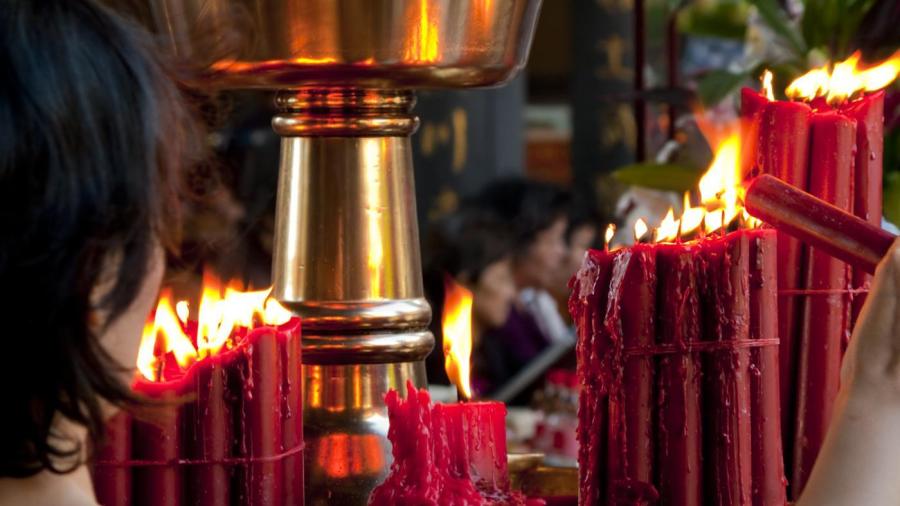What Are Some of the Beliefs of Confucianism?

Essential beliefs of Confucianism include maintaining a sense of doing the right things, serving superiors diligently and showing loyally while displaying benevolence toward others. Confucianism maintains a humanistic outlook that considers secularism to be sacred.
Traditional Confucian teachings were an integral part of the orthodox state ideologies of ancient Chinese dynasties, especially the Han Dynasty, spanning the years of 202 BC to 220 AD. Countries that have been influenced by Confucian teachings include China, Taiwan, Korea, Japan and Vietnam. Confucianism is more of a philosophical and ethical system of beliefs than it is a religion. Adhering to tenets of Confucianism requires followers to adhere to specific rules and rituals based on societal hierarchy as they interact with others. People in positions of authority within society influence others with a positive moral example.
The Five Virtues
The Five Virtues are also known as the Wuchang, which define Confucian ethics, according to information published about Oriental Philosophy by Lander University. Ren is human goodness and benevolence, which is characterized by an attitude of outward love and concern to all other people. People following Confucianism seek to prioritize human life, even sacrificing for others. Ren is considered the sum of every virtue, the epitome of selflessness. Li is the propriety and social order that guides human relationships. Li is further subdivided into a concrete set of rules that govern actions and general principles that give order to life. Yi involves an internal moral disposition to do what is right and good, practicing these actions until they become second-nature. Hsiao involves showing reverence and respect to people who are in positions of honor. Parents are always revered by people practicing Confucianism. Anyone who saves a life also receives this reverence. Chih or Zhi is an addition to Confucianism that defines the difference between right and wrong. As followers grow older, they are expected to grow and mature, improving their thinking process. Finally, Hsin is faithfulness and dependability, keeping one’s word. The basis of Hsin is integrity.
Focus of Confucianism
Master Kong, the creator of Confucianism, didn’t devise it as a new religion. Confucianism emphasizes family and ethics and not gaining salvation via a transcendent divine being. Kong receives honor as a respected teacher; however, followers do not worship him or consider him to be a god. Similarly, Kong did not consider himself divine. Humans are considered teachable and perfectible through processes of personal endeavors and self-cultivation. The original purpose of Confucianism was to institute civilized order through social rituals and codes of behavior. Kong believed that it was only through stable and unified social order that a society could be civilized, writes Judith A. Berling in a document published by Kenyon College.
Under Confucianism, human relationships involve defined roles with everyone having responsibility for personal obligations. Everyone must understand and follow his or her proper role in society. Within the family unit, if people act correctly, the ripple effect moves out to help reform society as a whole. Followers of Confucianism embark on a lifetime commitment to build and refine their character. Failing to uphold the cardinal moral imperatives of Confucianism would be viewed with strong contempt from other followers.





